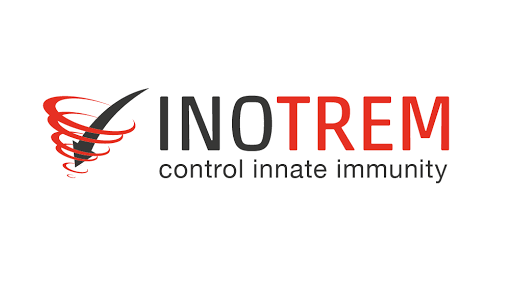Inotrem Announces Enrollment of First Patient in its Phase IIb ASTONISH Trial for Nangibotide in the Treatment of Septic Shock
Paris (France). November 21. 2019. Inotrem S.A., a biotechnology company specializing in immunotherapy for acute inflammatory syndromes, through its knowledge of the TREM-1 pathway biology, announced today it has initiated its Phase IIb ASTONISH trial to evaluate nangibotide in the treatment of septic shock and has enrolled the first patient in the trial.
Nangibotide is a TREM-1 inhibitor peptide with the potential to restore appropriate inflammatory response, vascular function, and improve post septic shock survival. Septic shock is the ultimate complication of sepsis. The incidence of septic shock continuously raises and mortality remains elevated (35%) in developed countries. There is currently no specific therapy approved for this indication besides antibiotics and supportive treatment. Inotrem’s therapeutic solution has the potential to become the first mechanism-based treatment for septic shock. Nangibotide in septic shock has been granted the fast track status in September 2019 by the FDA and the PRIME status in 2017 by the EMA.
The Phase IIb ASTONISH study aims to demonstrate the efficacy of nangibotide and bring a medically relevant proof of clinical activity in septic shock patients. In addition, this global multicentric study intends to validate a personalized medicine approach using soluble TREM-1 as potential companion diagnostic test to identify patients more likely to benefit from nangibotide treatment. The study will be conducted in 48 clinical sites across 5 European countries and the United States and will enroll a total number of 450 patients.
Jean-Jacques Garaud, CEO of Inotrem, said: “The ASTONISH trial is a Phase III enabling trial and we expect that it will generate important insights about nangibotide’s clinical activity and our personalized medicine approach in septic shock. We are enthusiastic about this study and Inotrem’s capacity to bring a first in class product in an area with major unmet medical need and to patients who today have no access to any approved treatment”.
With nangibotide, Inotrem has developed a novel approach of immunomodulation targeting the TREM-1 pathway which has the potential to address, beyond septic shock, several others acute inflammatory syndromes for which there is a major and today unsatisfied therapeutic need. Based on its its extensive knowledge of the TREM-1 pathway biology, Inotrem has aso launched a new program to expand its TREM-1 franchise into chronic inflammatory diseases
About Inotrem
Inotrem S.A. is a biotechnology company specialized in immunotherapy for acute and chronic inflammatory syndromes. The company has developed a new concept of immunomodulation that targets the TREM-1 pathway to control unbalanced inflammatory responses. The company was founded in 2013 by Dr. Jean-Jacques Garaud, a former head of research and early development at the Roche Group, Prof. Sébastien Gibot and Dr. Marc Derive. Inotrem is supported by leading European and North American investors. www.inotrem.com
About Nangibotide
Nangibotide is the formulation of the active ingredient LR12, which is a 12 amino-acid peptide prepared by chemical synthesis. LR12 is a specific TREM-1 inhibitor, acting as a decoy receptor and interfering in the binding of TREM-1 and its ligand. In
preclinical septic shock models, nangibotide was able to restore appropriate inflammatory response, vascular function, and improved animals’ survival post septic shock. Nangibotide in septic shock has been granted the fast track status in September 2019 by the FDA.
ASTONISH Study
The Efficacy, Safety and Tolerability of nangibotide in Patients with Septic Shock (ASTONISH) phase IIb trial is a Randomized, Double-blind, Placebo Controlled Dose Selection Study that will be performed Europe and the US. Four hundred and fifty patients are planned to be included in this study in 48 clinical sites. The study will compare the effect of nangibotide at two different doses versus standard of care.






